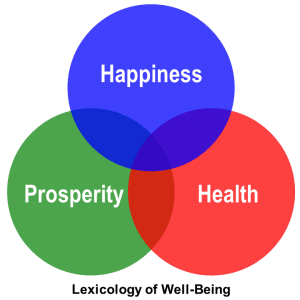I recently posted a photo reminder of The Four Agreements and had quite a few questions about them. So, I thought it would be helpful to write a bit more about each of these agreements. As we explore retirement, we each hope to be more thoughtful, wise, reflective… sometimes we must challenge ourselves to gain these insights and learnings – let’s do it!
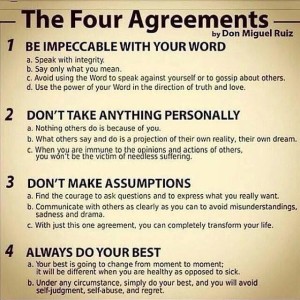 First, let me give full credit to where credit is due. Don Miguel Ruiz wrote The Four Agreements, a relatively short book based on ancient teachings of the Toltec’s of Mexico. Irregardless of where they came from originally, they hold great power for each of us today.
First, let me give full credit to where credit is due. Don Miguel Ruiz wrote The Four Agreements, a relatively short book based on ancient teachings of the Toltec’s of Mexico. Irregardless of where they came from originally, they hold great power for each of us today.
These four Agreements are important to consider in order, and the first is clearly the most important. If we can each live by this one Agreement we would eliminate the vast majority of drama, pain, and misunderstanding in our lives and for those around us.
The words of the first Agreement are simple: Be Impeccable with Your Word.
The intent and discipline behind that Agreement, however, are not as simple but very achievable for each of us with practice.
What does Impeccable mean. Certainly, it means be conscious, be choiceful of each word but with what intent? Impeccable comes from the Latin, pecatus, meaning “sin”. Im means “without”. Without Sin in this context doesn’t necessarily refer to religious sin but more broadly moral sin as you may define it. Don’t sin against others or yourself by speaking words of blame, implying guilt, using hurtful words – words that hurt others and ourselves.
So often we use our words to share anger, jealousy, envy, hate, and knowingly or unknowingly create confusion or misdirection in others. How often do our words, and those of others, communicate ‘unsubstantiated truths’ — GOSSIP! And what is the impact of gossip? It is a disturbing and far reaching ripple that can have a significant and long lasting impact on others. When we spend even a moment to reflect on it, it is evident there is no room or reason for gossip in our lives. We should make a commitment now to not speak it, not listen to it, it has no positive purpose for us. Part of Being Impeccable with Our Word, is being conscious about the discipline of eliminating gossip from our mouths and from our interactions every day. I am not saying it is easy, it will take practice, and I will come back to that in a moment.
So, if we seek to eliminate harmful words communicating blame, jealousy, spreading gossip, etc. you may ask, “what is left?!” It is simple and sounds so flowery: Truth and Love.
Speak the truth – share beneficial observations, creativity, curiosity, inquiry to better understand the world and the people around you.
Speak with love – share kindness, service, gratitude, fun and acknowledgement of others around you.
In very short order you will realize the “superpower” in each of us. We have the ability to impact those around us in dramatic and meaningful ways. 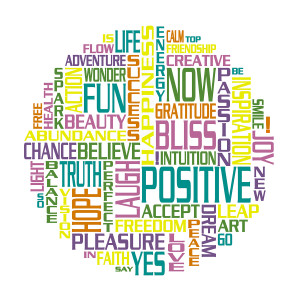 Our Superpower can be used for good or evil. When we speak words of compassion, we lift people up. We give ourselves and others energy, inspiration, and generate smiles all around us. We do not speak fake positive words or speak with insincerity – simply by removing the negativity and connecting with others in a positive way, we build a better world all around us. We have that Superpower completely within our control.
Our Superpower can be used for good or evil. When we speak words of compassion, we lift people up. We give ourselves and others energy, inspiration, and generate smiles all around us. We do not speak fake positive words or speak with insincerity – simply by removing the negativity and connecting with others in a positive way, we build a better world all around us. We have that Superpower completely within our control.
Lastly, we must “Be Impeccable with Our Word” for OURSELVES. Think carefully about the words we use with ourselves. “Why do bad things always happen to me?” creates a negative energy and a mental focus on bad things — we then reinforce that and see negative things happening to us more often becoming a depressing downward spiral. Or, “I need to lose weight” labels as someone who needs to lose weight – starting tomorrow? or the day after that? but never brings action today! Instead, if focus on the positive and the NOW, if we say to ourselves, “I eat healthy foods” you can feel the impact almost immediately. We feel different, we act different, we eat different. Words are powerful.
Join me in practicing the first of the Four Agreements, and trust me, I am working on it, too! It is first Agreement because it is the most important. It’s daily practice gets us thinking differently and let’s us experience that difference for ourselves and it’s impact on those around us. Be Impeccable with Your Word – Speak only from truth and love. If you fall short one day, notice where and when it happened. Reflect on it at the end of the day and start the next day fresh, again and again. We have built our habits over many days and years, this Agreement will take daily practice and daily discipline but the insights and payoff are immense.
I know you can Be Impeccable with Your Word. It is one of the few things in life which is fully in each of our control. Seize control and let me know what you learn!
…then, we can move on to the Second Agreement! If you enjoyed this post, share with others so we can broaden the impact and learn together.




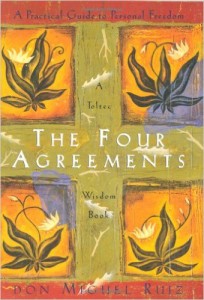 Yet, when it happens to you, when someone criticizes you or yells at you, it can be more difficult! You may feel offended and your reaction is to defend yourself, defend your beliefs, and create conflicts. You may make something big out of something small because you have the need to be right and make everybody else wrong. You may hold onto this negative energy for hours, days, weeks or even longer! But… maybe that person was simply having a bad day; maybe that person needed to feel better about themselves; maybe that person comes from a different culture/background with different beliefs; maybe it wasn’t about you at all, it was about them.
Yet, when it happens to you, when someone criticizes you or yells at you, it can be more difficult! You may feel offended and your reaction is to defend yourself, defend your beliefs, and create conflicts. You may make something big out of something small because you have the need to be right and make everybody else wrong. You may hold onto this negative energy for hours, days, weeks or even longer! But… maybe that person was simply having a bad day; maybe that person needed to feel better about themselves; maybe that person comes from a different culture/background with different beliefs; maybe it wasn’t about you at all, it was about them.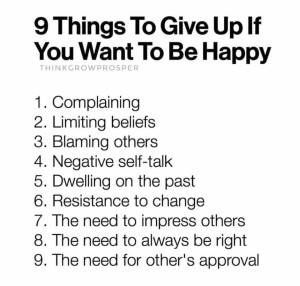 As a life-long student of leadership and mindfulness, I found the following list of 9 Things to Give Up quite interesting related to the agreement not to take anything personally —
As a life-long student of leadership and mindfulness, I found the following list of 9 Things to Give Up quite interesting related to the agreement not to take anything personally —
 First, let me give full credit to where credit is due. Don Miguel Ruiz wrote The Four Agreements, a relatively short book based on ancient teachings of the Toltec’s of Mexico. Irregardless of where they came from originally, they hold great power for each of us today.
First, let me give full credit to where credit is due. Don Miguel Ruiz wrote The Four Agreements, a relatively short book based on ancient teachings of the Toltec’s of Mexico. Irregardless of where they came from originally, they hold great power for each of us today. Our Superpower can be used for good or evil. When we speak words of compassion, we lift people up. We give ourselves and others energy, inspiration, and generate smiles all around us. We do not speak fake positive words or speak with insincerity – simply by removing the negativity and connecting with others in a positive way, we build a better world all around us. We have that Superpower completely within our control.
Our Superpower can be used for good or evil. When we speak words of compassion, we lift people up. We give ourselves and others energy, inspiration, and generate smiles all around us. We do not speak fake positive words or speak with insincerity – simply by removing the negativity and connecting with others in a positive way, we build a better world all around us. We have that Superpower completely within our control.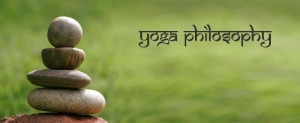 Yesterday we studied and discussed the Yamas and Niyamas of yoga – the restrains and observations. Each yama and niyama was fascinating as we discussed it in depth. Each spoke to me as exactly what I need to focus on right now. Each had depth and applicability to every individual in every situation. And each was more relevant in today’s hectic, ego-centric, type A world, than ever before. A few examples:
Yesterday we studied and discussed the Yamas and Niyamas of yoga – the restrains and observations. Each yama and niyama was fascinating as we discussed it in depth. Each spoke to me as exactly what I need to focus on right now. Each had depth and applicability to every individual in every situation. And each was more relevant in today’s hectic, ego-centric, type A world, than ever before. A few examples: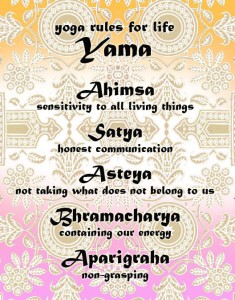




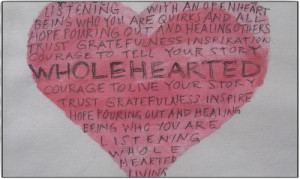
 During my first months of retirement, my wife and I have bought an RV, planning a 2 month family trip through national parks out west this summer (
During my first months of retirement, my wife and I have bought an RV, planning a 2 month family trip through national parks out west this summer (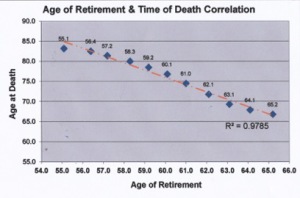
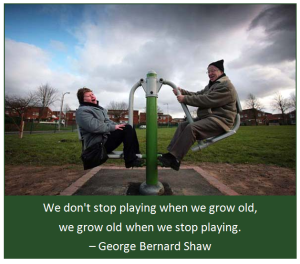 The famous playwright George Bernard Shaw once said – “We don’t stop playing because we grow old; we grow old because we stop playing.” I think for many of us that risk is real.
The famous playwright George Bernard Shaw once said – “We don’t stop playing because we grow old; we grow old because we stop playing.” I think for many of us that risk is real.